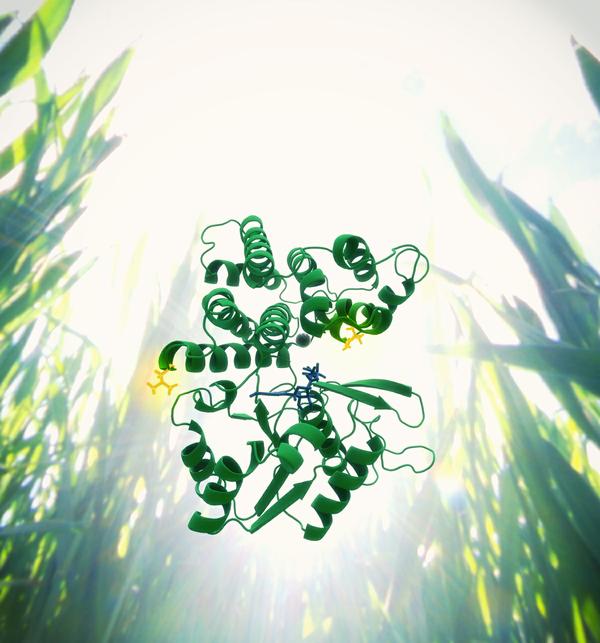A team of researchers at the Department of Energy's BioEnergy Science Center (BESC) have pinpointed the exact, single gene that controls ethanol production capacity in a microorganism - a discovery that could be the missing link in developing biomass crops that produce higher concentrations of ethanol at lower costs.
The discovery of the gene controlling ethanol production in Clostridium thermocellum means that scientists can now experiment with genetically altering biomass plants to produce more ethanol.
Current methods to make ethanol from lignocellulosic biomass found in switchgrass and agricultural waste require the addition of expensive enzymes to break down the plant's barriers that guard energy-rich sugars.
Scientists have been working to develop a more streamlined approach in which tailor-made microorganisms produce their own enzymes that unlock the plant's sugars and ferment them into ethanol in a single step. Identifying this gene is a key step towards making the first tailor-made microorganism that produces more ethanol.

Researchers at ORNL's BioEnergy Science Center have identified a single gene -- represented in this protein structure visualization -- that is responsible for ethanol tolerance in C. thermocellum. More ethanol-tolerant strains of the microbe could boost ethanol production from woody crops. Image: T Splettstoesser, scistyle.com
Although scientists have studied Clostridium thermocellum for decades, the genetic basis for its ability to tolerate higher concentrations of ethanol had not been determined.
The BESC team located the single gene by sequencing the genomes of two types of C. thermocellum, a wild-type strain as a reference and an ethanol-adapted strain. The researchers singled out a mutated gene in the ethanol-adapted strain called alcohol dehydrogenase, the final protein in the microbe's pathway for making ethanol.
"Our results were really unexpected. It was deemed very unlikely to be a single gene because it's such a complex trait," said Steven Brown of DOE's Oak Ridge National Laboratory. "When we put this particular copy of the adhE gene into the wild type strain, we were able to generate the mutant phenotype with just this one gene."
Article: "Mutant alcohol dehydrogenase leads to improved ethanol tolerance in Clostridium thermocellum," PNAS